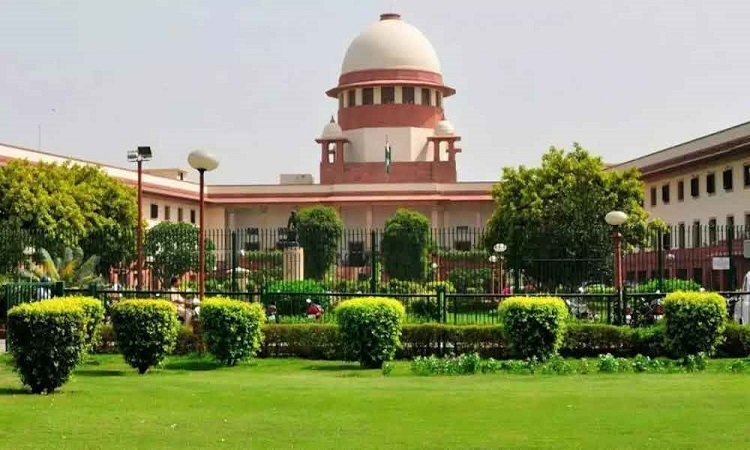Supreme Court stays case against SP leader Swami Prasad Maurya regarding 'Ramcharitmanas'
The Supreme Court on Thursday stayed the criminal proceedings against Samajwadi Party leader Swami Prasad Maurya concerning his alleged controversial remark over Ramcharitmanas. Read further on Dynamite News:

New Delhi: The Supreme Court on Thursday stayed the criminal proceedings against Samajwadi Party leader Swami Prasad Maurya in a case concerning his alleged controversial remark over Tulsidas' Ramcharitmanas.
A bench of Justices BR Gavai and Sandeep Mehta also issued notice to the Uttar Pradesh government and sought its response in the matter.
Read This Also: Dimple Yadav MP in Parliament premises; Interacts with different women
Maurya approached the apex court challenging the Allahabad High Court order, which had dismissed his plea seeking direction to quash legal proceedings in a Pratapgarh district court concerning the case of remarks against Tulsidas' 'Ramcharitmanas'.
Also Read |
Plea in SC for bringing political parties under RTI
During the hearing today, Justice Mehta asked counsel appearing for Uttar Pradesh, "It is his (Maurya) opinion. How is it an offence?"
Read This Also: "We are not upset...Results will be different in future": Akhilesh Yadav on BJP victory in three states
Former UP Minister Maurya has been accused of making a statement that certain "chaupayi" of the Ramcharitmanas insult a large section of society and thus should be banned.
Maurya allegedly said that the sacred text of the Hindus (Ramcharitmanas) was written by Tulsidas for self-praise, wherein he abused dalits, tribals, and backwards by naming their castes and calling them "shudra."
Also Read |
Supreme Court issues notice to Centre over guidelines banning transgenders from donating blood
He had allegedly objected to the two "chaupayis" of Ramcharitmanas for being against women, Dalits, tribals and backward-class people.
In November 2023, the Allahabad High Court, on perusal of the chargesheet and other documents, found sufficient grounds to establish a prima facie case against him and ruled that Maurya should proceed to trial in the lower court.
The High Court had said that public representatives should refrain from actions that could disrupt communal harmony. (with ANI inputs)
 Dynamite News
Dynamite News 